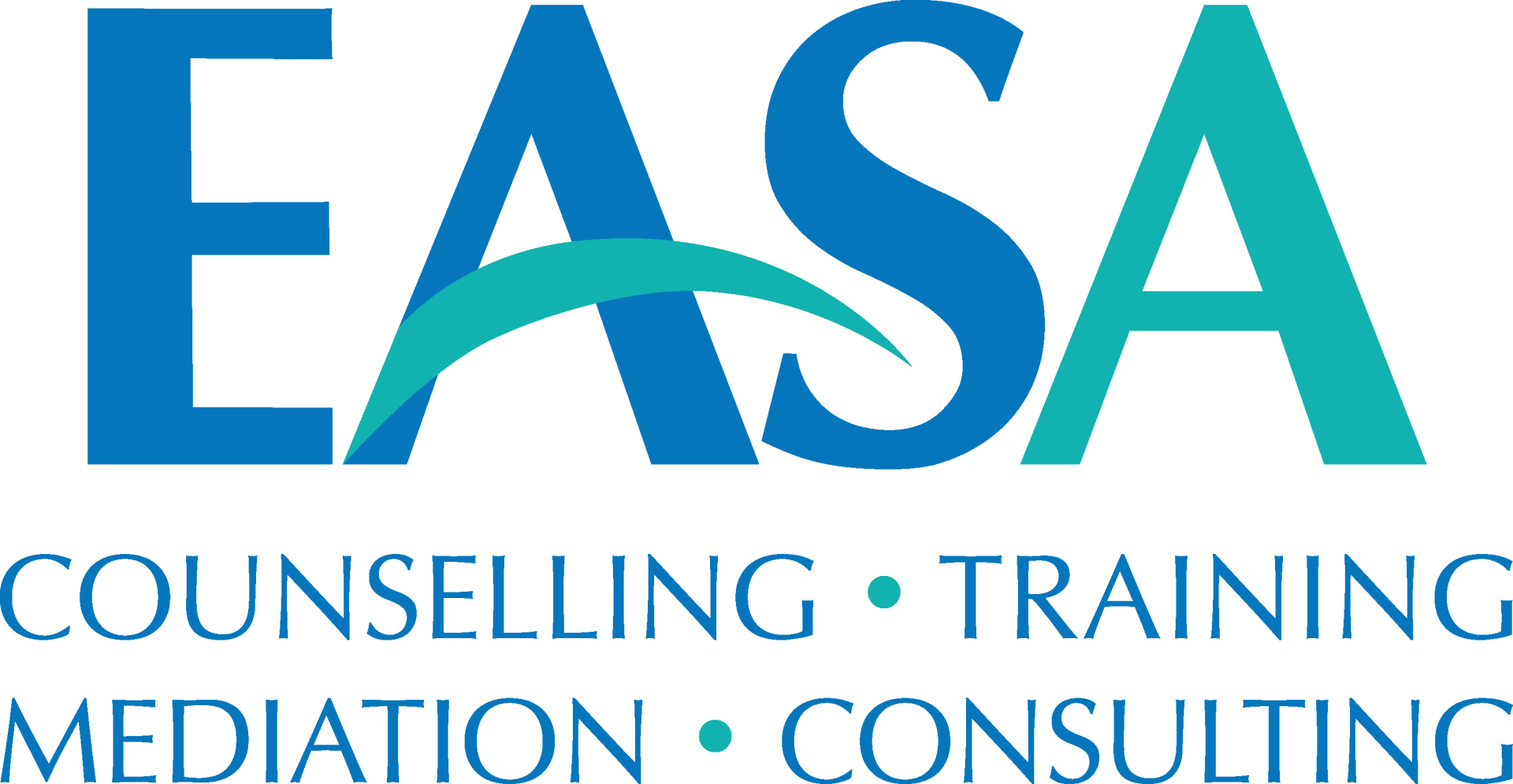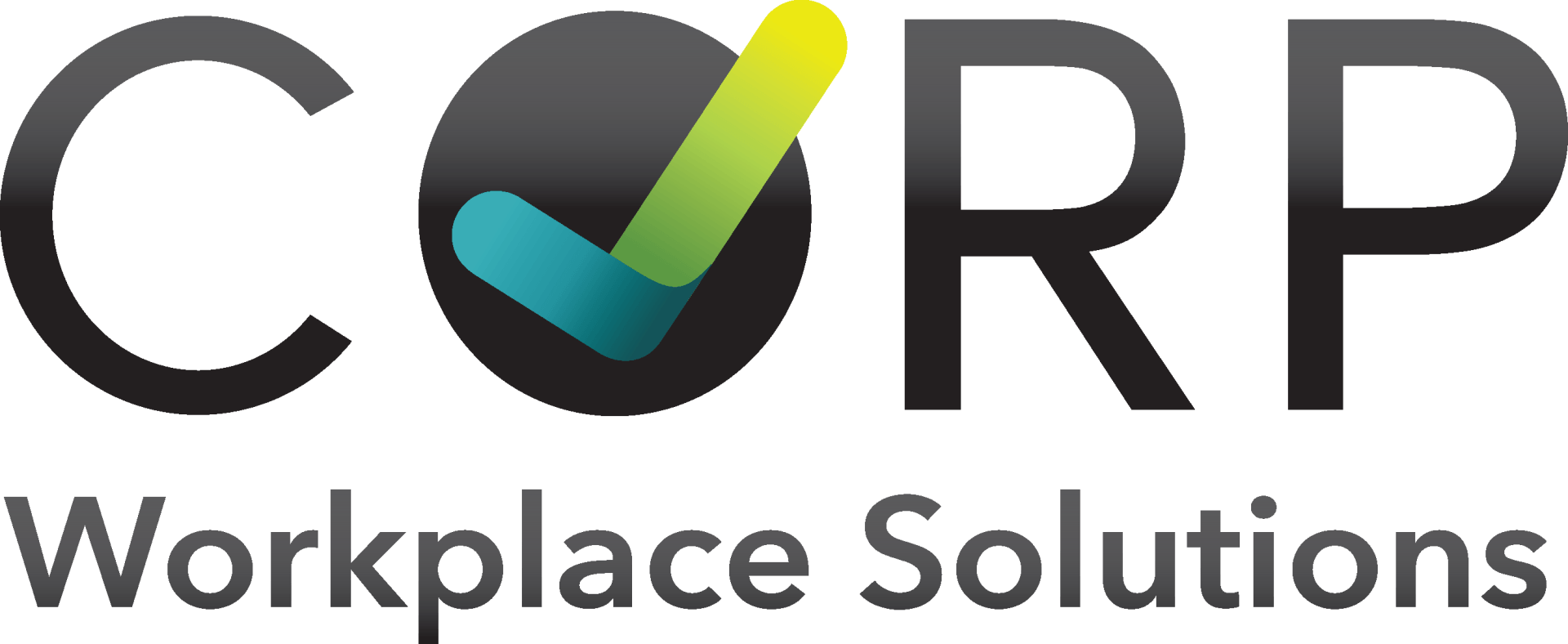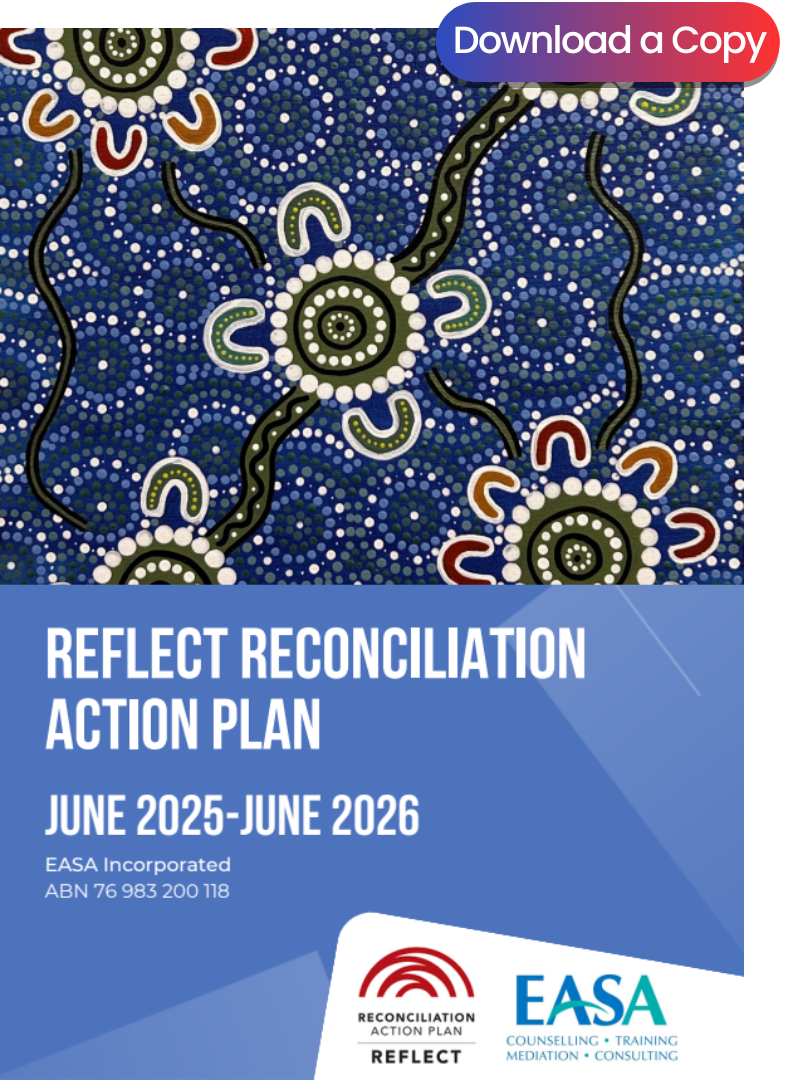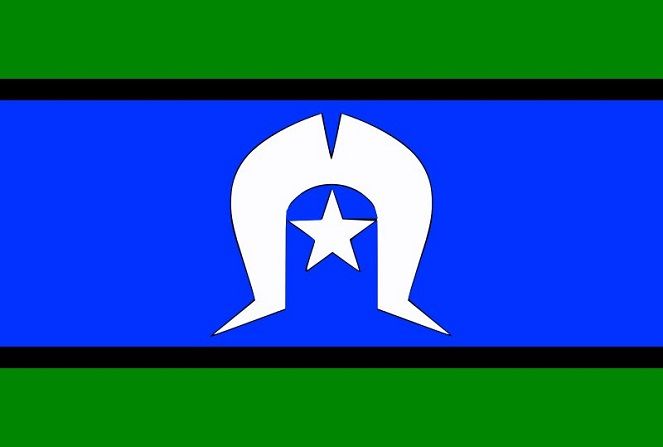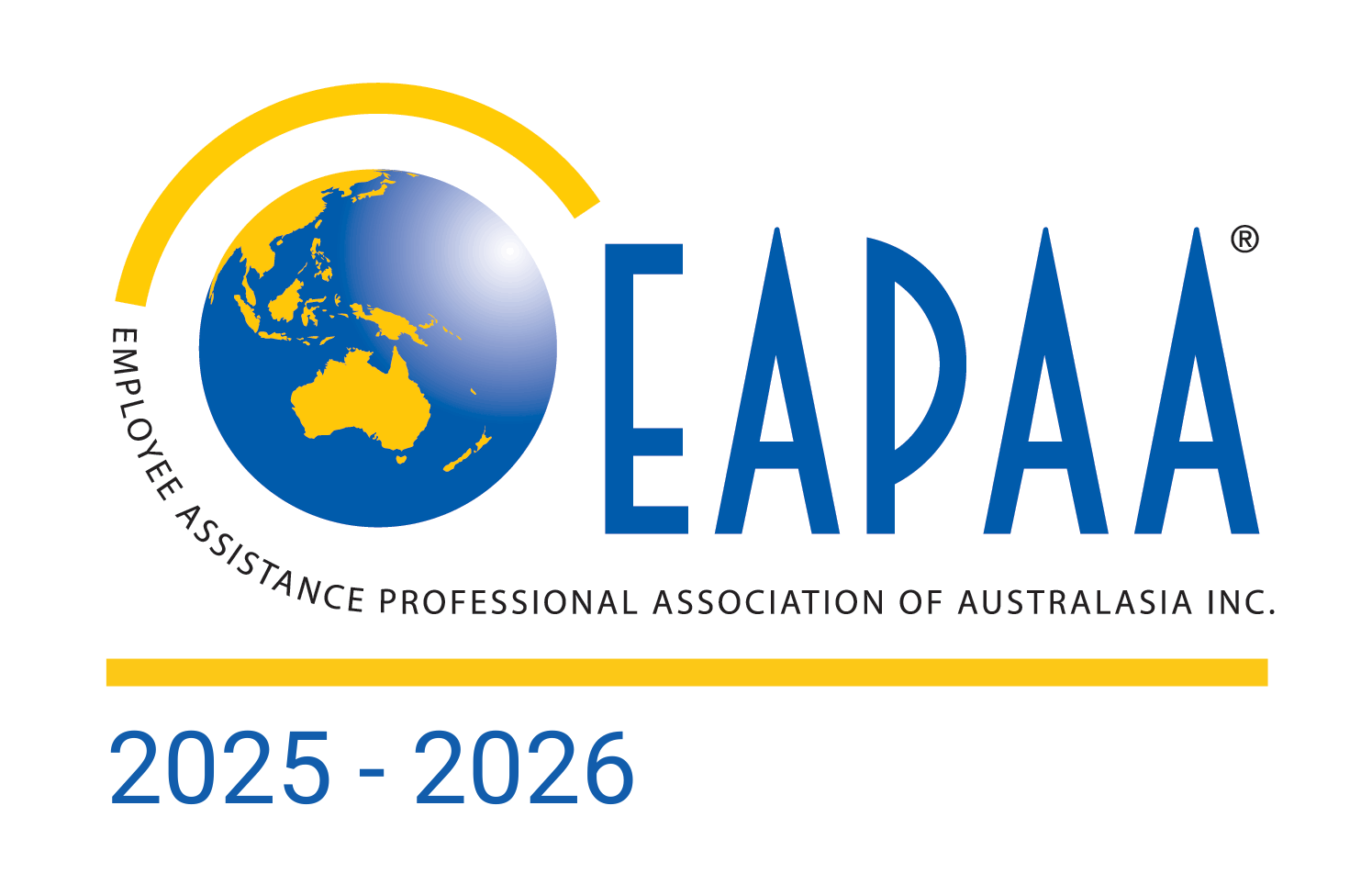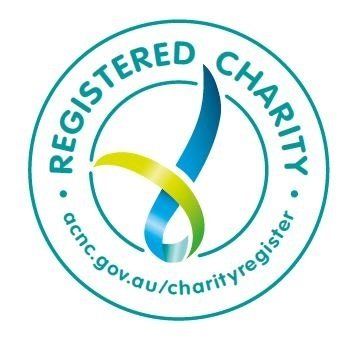The COVID-19 pandemic has changed the way we live. To help keep us safe, it is likely that our lives will be different for a while.
Working from home, not seeing friends and family regularly, and being uncertain of the future can take a toll. Some common consequences of disease outbreaks include anxiety and panic, depression, anger, confusion, and financial stress. People with pre-existing anxiety disorders, health anxiety (i.e. those who worry excessively about having or contracting illnesses), and other mental health disorders (e.g. depression, and post-traumatic stress) are at risk of experiencing higher anxiety levels during the COVID-19 pandemic. The figure below shows how Australians (with and without prior mental health diagnoses) rated their mental health during COVID-19.
Being aware of how you’re feeling and knowing what you can do to look after your mental wellbeing is an important part of staying healthy during this challenging time.
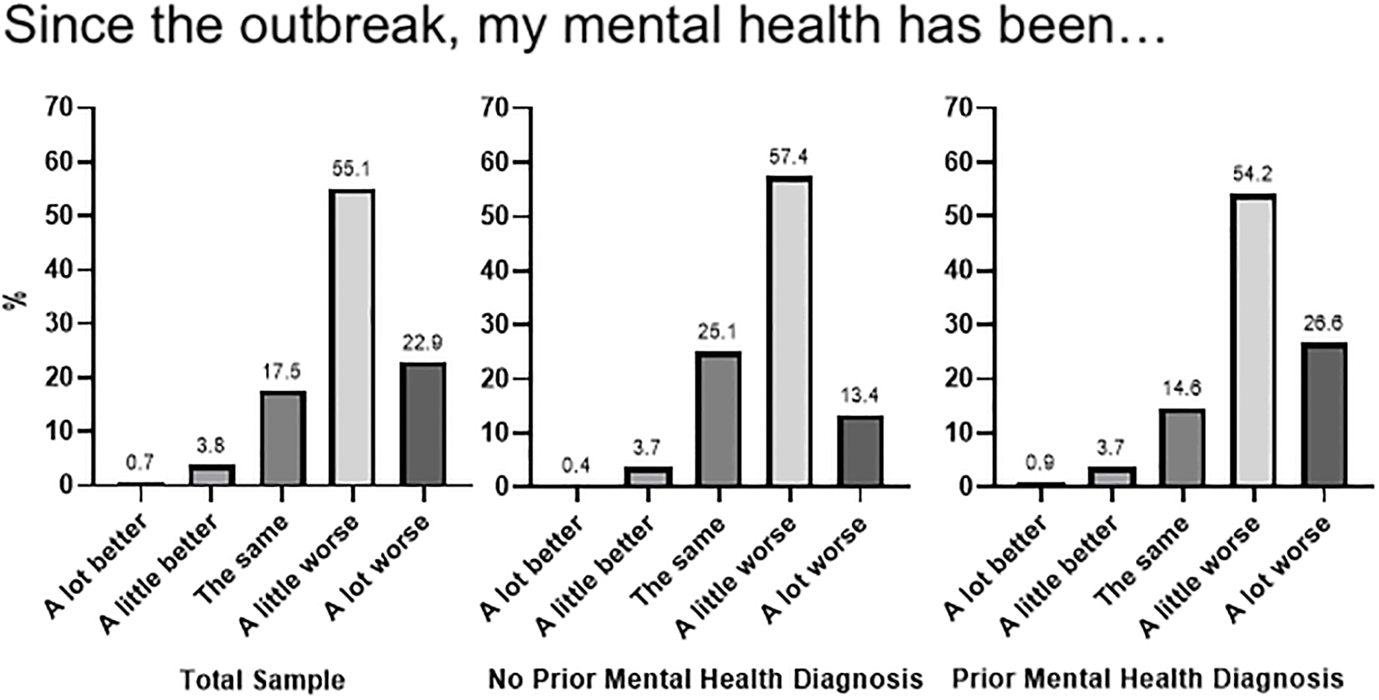
Here are some things you can do to look after your mental health during COVID-19...
Look after your physical health. Exercising and eating well help us stay physically and mentally healthy by reducing the risk of health conditions like stroke and heart disease, reducing stress and anxiety, and improving sleep.
Get a good night’s sleep. Getting a good night’s sleep is an important part of staying healthy. If you’re finding it hard to get to sleep, try implementing some sleep hygiene.
Stay connected. Maintaining social connections is important to feeling safe and well. Technology can help us keep in touch with family and friends even when we're distanced physically, so reach out with video, phone calls and online chats.
Stay focused on the here and now. Take each day step by step. Try to focus on the here and now - not the past and not the future. Live in the moment and take one day at a time.
Cut down or stop the behaviours that are fuelling your anxiety. Notice when your anxiety increases. If it’s related to certain things you are doing (like excessive social media engagement, panic buying, or talking about your concerns with particular people) then limit or stop these.
Remember to breathe. When you feel overwhelmed take a few slow, deep breaths to help you calm down. If there are other things that help you relax (e.g. walking, painting, reading or listening to music) you could try these too.
If you feel like you are not coping, seek professional advice. After trying these tips, if you’re still feeling overwhelmed you might want to think about getting in touch with a mental health professional. It’s okay to ask for help and there are a lot of options so you can choose what suits you best.
Contacts & Resources
Lifeline (24/7 service)
P: 13 11 14
Beyond Blue (24/7 service)
P: 1300 224 636
Sleep Foundation Sleep Hygiene
Beyond Blue Coronavirus Mental Wellbeing Support Service
References
Bults, M., Beaujean, D., Richardus, J., & Voeten, H. (2015). Perceptions and behavioural responses of the general public during the 2009 influenza A (H1N1) pandemic: A systematic review. Disaster Med Public Health Prep, 9(2), 207-19.
